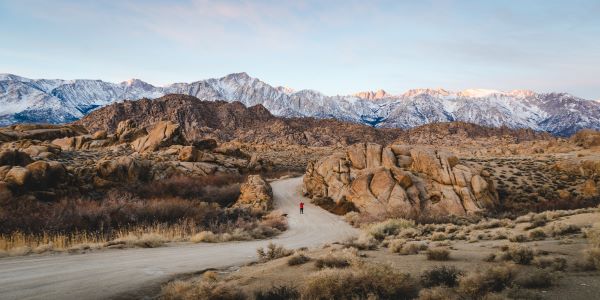Geography is an integral part of the UPSC Prelims and mains examination. However, UPSC provides aspirants with a good range of optional subjects. Optional papers constitute GS Paper V and VI. Geography as an optional subject enjoys great popularity among UPSC aspirants. It also features a commendable success rate among the toppers. Geography Optional Syllabus is vast and hence there are UPSC Geography Optional Books. Finding the right Geography Book for IAS exam might get tedious. You might simply lose your precious time in research and analysis. But hey! don’t be concerned, we have got your back! With some extremely important and Best Geography Book for UPSC, you’ll be able to ace the topics. And so, you shall find the Geography Optional Book List.

“The study of geography is about more than just memorizing places on a map. It’s about understanding the complexity of our world, appreciating the diversity of cultures that exists across continents. And in the end, it’s about using all that knowledge to help bridge divides and bring people together“.
Barack Obama
Geography Optional Book List
It is always advisable to start your preparation by reading the fundamentals because starting with the basics is anytime the first step. Thereby, you’ll understand the further complexities. Firstly, you must begin by reading NCERTs and then go for the Geography Book for IAS exam. Thus, you can polish your basic concepts by reading the subsequent NCERT Books.
Geography NCERT Class 6th to 12th are listed below:
- 6th – The Earth Our Habitat.
- 7th – Our Environment.
- 8th – Resource And Development.
- 9th – Contemporary India Part One.
- 10th – Contemporary India Part Two.
- 11th – Fundamentals of Physical Geography and India – Physical Environment.
- 12th – Fundamentals of Human Geography and India – People and Economy.
Optional and ethics are the two most important subjects to prepare for UPSC Examination. Hence, working on your optional regularly is necessary. The answers you write in Optionals are what help you stand out from the average crowd. With this intention in mind, you should dedicate considerable time to prepare for your optional. The Geography Optional Book List will help you to think logically and multi-dimensionally. UPSC demands logical, factual, and conceptual data in your answers. Initially, you might find it difficult to understand geography but with time and practice, you can easily decode the logic behind a particular text.

Books referred by toppers: Here are some UPSC Geography Optional Books which are extremely important.
Furthermore, you must refer to these books(Geography Books for IAS exam) after completing the above NCERTs because these books form a very important part of the Geography Optional Book List and will ultimately cover your actual syllabus. In fact, these books are the intermediate level sources of your preparation.
- Agricultural Geography – Majid Husain.
- Environmental Geography – H.M. Saxena.
- Oceanography – Sharma and Vatal.
- Physical Geography – Savindra Singh.
- Regional Planning in India – Chand and Puri.
- India- A Comprehensive Geography – Khullar
The topics are extensively covered in the above-mentioned books. Around 80% of the topics can be covered through Geography Book for IAS exam. Moreover, you’ll need the below mentioned additional sources in consonance with the Geography Optional Book List to cover your syllabus as well. Above all, accompany your revisions with maps regularly to get a brief idea of what you’re exactly studying.

Other Geography Optional Books for Paper I
- A Geography by Population – R.C. Chandna.
- Climatology – D.S.Lal.
- Economic Geography – Hartshorn and Truman A.
- Geomorphology – Critchfield.
- Political Geography – R.D. Dixit.
Other Geography Optional Books for Paper II
- A Geography of India – Gopal Singh.
- Certificate Physical and Human Geography – Goh Cheng Leong.
- Environmental Awareness – R.C. Chandna.
- India disasters report.
- Urbanization and Urban Systems in India.
As a matter of fact, you will need to sort the topics from the Geography Optional Books. It is always advisable to prepare notes from two or more sources. This, will help you understand and pick the most suitable data for your understanding. But, that doesn’t mean you will skip any topic. In fact, you must try to complete as much as the syllabus you can from these sources. Either way, skipping a topic might prove disastrous and can cause a loss of a good amount of marks. On the other hand, if you work on the most important topics in basics and then move ahead with the intermediate level sources covering the major ground for your subject, then there’s a greater chance for you to master the subject.
About the Additional Sources of Preparation
On the condition, that you accompany your theories with these additional sources your answer becomes more valuable as compared to other aspirants. When you add factual and practical data to your answers it adds greater weightage to your content. Therefore, reading just the Best Geography Book for UPSC is not enough. India yearbook gives a summary of various data published by the different ministries/departments. Hence it is an important one-stop compilation of information for aspirants. Yojana and Kurukshetra magazines will help you seek data on the most relevant schemes/policies as well as rural governance. Kurukshetra magazine will help you understand social issues and developments. Down to earth magazine is focused on environmental politics and is therefore important for UPSC syllabus.
About Magazines, Reports, Current Affairs and Atlas.
About the oxford atlas, it is simple to use and understand and is extensively used among UPSC aspirants. There are a variety of atlases for geography but the most preferred by beginners is The Oxford Atlas. Next, we will talk about the famous source of current affairs, “The Hindu” newspaper. This daily newspaper provides you with daily news on various subjects. Therefore, you can search for your geography updates here as well!
Talking about Geography and You Magazine, it is published in New Delhi for 15 years. It is one of the most loved magazines among geography students. The magazine talks about issues prevailing in South Asia and India in particular. Finally, we’ll be talking about reports from Niti Aayog and United Nations. Reports and Surveys from Niti Aayog and UN usually cover the maximum possible ground. They are crisp and easy to decode as well. Reading UPSC Geography Optional Books will help you solidify your static content whereas, current affairs and the additional sources will keep you up to date. This will help you relate your topics with ongoing events.

The additional source of preparation
The following sources can be used in combination with The Geography Optional Books:
1.India Year Book
2.Yojana and Kurukshetra magazines.
3. Oxford Atlas.
4. The Hindu newspaper.
5. Down to Earth Magazine.
6. Geography And You Magazine.
7. Reports from Niti Aayog.
Along with the above Geography Book for IAS exam these additional sources will supplement your knowledge and widen your thinking capacity. Remember: Reading and Revision is the key to clear one of the toughest exams in India! Geography optional papers are often comprehensive and you’ll not want to miss out on anything. In addition to this, you will need current affairs to back up your answers and make them more constructive! As a result of which, you can score higher marks in geography optional.
How to choose the right UPSC Geography Optional Books among various sources?
While reading the above sources, you might come across a lot of detailed explanations for topics. There can be topics less relevant to our Geography Optional Syllabus. Here, you must first analyze the syllabus and then mark the important topics you wish to read from these books. This analysis will give you a higher cost to benefit ratio. It will increase your chances of clearing the paper.Choose the right content from these books and prepare your own notes to simplify concepts.
Geography Optional overlaps with Geography in mains and hence common topics need to be thoroughly revised. This overlap will help you better understand the topics. First, gather data from different books and consolidate them for your convenience. But don’t forget to connect these topics with your regular current affairs. Secondly, don’t miss out on a single chance of reading maps using Atlas. Whenever you study Geography, whether for mains or for optionals, maps are an indispensable part of the subject. Maps will help you imagine the actual scenarios that you read in theories. Thirdly, Don’t forget to revise important topics! And then Support your preparation with enough answer writing and mock tests. Lastly, unless you don’t test your knowledge you won’t know where you stand in the race!
You can also check about other books related to UPSC like Ethics Books, Generic Books, Books for Hindi Medium, CSAT Books, History Books & NCERT Books.
FAQs – Frequently Asked Questions
Geography Optional as a subject is the most popular amongst aspirants. You can always check the merit list and you’ll see what immense success geography as an optional gets you.
Start with the fundamentals. Once you’re done with your foundational framework go for intermediate level study material. After this, you need to revise and practice concepts through regular mock tests.
The first difference is, in mains examination geography could be a smaller part of GS 1. Whereas geography as an optional subject comprises of Paper 1 and Paper 2.
Understanding geography in mains is relatively simple, geography optional covers a bigger ground with a wider syllabus.
Editor’s Note | Best Geography Book for UPSC
In this article, we saw that Geography as a subject is not only theoretically important but also practically necessary. Students who choose Geography can learn a lot about their surroundings. Geography will also help students in understanding disasters and landscapes and causes of disasters, whether natural or manmade. Optional paper 1 and paper 2 need to be studied simultaneously and not separately. As it will help you to connect better with the subject these two papers need to be studied in synchronization. Remember that, geography covers a larger ground in optional than in mains. Hence, being consistent with the subject from the very beginning is important. Therefore, you must analyze previous years’ question papers and prepare your study material accordingly. Last but not the least, prepare a timetable and regularly revise your optional and you’ll be good to go







